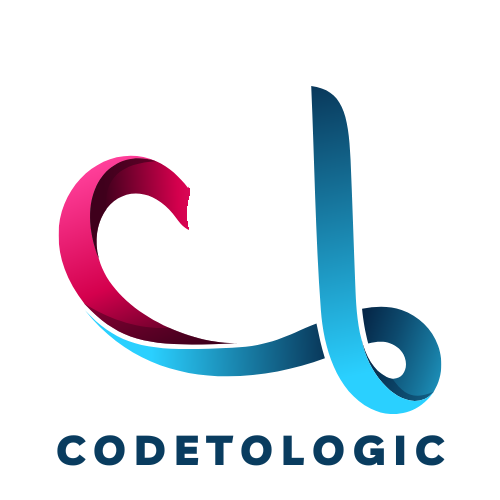27 Jul
Introduction
In today’s fast-paced digital landscape, marketers face the formidable challenge of engaging with increasingly discerning consumers and staying ahead of ever-evolving market trends. To address these challenges, Artificial Intelligence (AI) has emerged as a transformative force in the marketing industry. In this article, we will explore how AI is revolutionizing marketing, enabling marketers to craft more personalized, data-driven, and effective strategies that resonate with their target audience.
Understanding AI in Marketing
Artificial Intelligence refers to the use of computer systems to perform tasks that typically require human intelligence. In marketing, AI leverages machine learning algorithms and big data analytics to automate processes, analyze data, predict outcomes, and generate insights. The integration of AI into marketing strategies has unlocked a plethora of opportunities for businesses to enhance customer experiences, streamline operations, and drive growth.

Personalisation Redefined
AI’s most impactful contribution to marketing lies in its ability to deliver hyper-personalised experiences to consumers. By analysing vast amounts of customer data, including browsing behaviour, purchase history, and demographic information, AI algorithms can create highly tailored content, product recommendations, and advertising. This level of personalisation significantly improves customer engagement and conversion rates.
For example, e-commerce platforms use AI to provide product recommendations based on individual customer preferences, leading to increased sales and customer satisfaction. Email marketing campaigns can also benefit from AI-driven personalisation by delivering relevant content to each recipient, resulting in higher open and click-through rates.

Predictive Analytics Unleashed
AI’s prowess in predictive analytics allows marketers to anticipate customer behaviour and market trends accurately. Through the analysis of historical data, AI algorithms can forecast future consumer preferences, enabling businesses to adapt their strategies in real-time and gain a competitive edge.
Marketers can leverage predictive analytics to optimise advertising spend by targeting the right audience with the right message at the right time. This not only maximises return on investment (ROI) but also enhances the customer experience by minimising exposure to irrelevant advertisements.

Enhancing Customer Service with Chatbots
AI-powered chatbots have revolutionised customer service, providing round-the-clock support and engagement. These virtual assistants can respond to customer inquiries, offer product recommendations, and even process transactions. Chatbots not only improve customer satisfaction and retention rates but also reduce operational costs for businesses.
By leveraging Natural Language Processing (NLP) and Machine Learning, chatbots can engage in more human-like conversations, making customer interactions seamless and efficient. They can assist with tasks ranging from answering frequently asked questions to troubleshooting technical issues, providing immediate assistance to customers.

Content Creation and Curation
AI also plays a vital role in content marketing. It can generate written content, including product descriptions, blog posts, and news articles, based on predefined parameters and data. While AI-generated content may lack the creative touch of human writers, it proves to be a valuable tool for generating large volumes of content quickly.
Furthermore, AI assists in content curation by identifying trending topics and relevant articles for sharing on social media or in newsletters. This not only saves marketers time but also ensures that the content they share remains timely and engaging.

Data-Driven Decision-Making
One of the most significant advantages of AI in marketing is its ability to process and analyze vast amounts of data quickly. Marketers can gain profound insights into consumer behavior, campaign performance, and market trends. Armed with this knowledge, they can refine their strategies, allocate resources effectively, and make data-driven decisions that lead to better outcomes.
AI-driven analytics tools can uncover hidden patterns and correlations in data that human analysts might overlook. These insights can inform marketing strategies, enabling marketers to adapt and refine campaigns for maximum impact.

Ethical Considerations
While AI offers tremendous benefits in marketing, it also raises ethical concerns. Marketers must ensure the responsible and transparent use of AI, particularly concerning data privacy. Customers must be informed about how their data is being used and given the option to opt out of AI-driven personalisation if they wish.
It is also crucial for marketers to address concerns related to bias in AI algorithms, as these algorithms can inadvertently perpetuate existing prejudices and inequalities. Striving for fairness and transparency in AI applications is essential to build trust with consumers.
Conclusion
In conclusion, Artificial Intelligence is reshaping the marketing landscape by enabling hyper-personalisation, predictive analytics, chatbot-driven customer service, content generation, and data-driven decision-making. As businesses continue to embrace AI, they must prioritise ethical considerations to maintain trust with their customers.
The future of marketing is undeniably intertwined with the power of AI. Those who harness its potential will thrive in the digital age, crafting marketing strategies that not only resonate with their audience but also adapt and evolve in real-time to meet the ever-changing demands of the market. As AI continues to advance, the possibilities for innovation in marketing are limitless, promising a future where marketing campaigns are not just advertisements but meaningful and personalized interactions with consumers.
